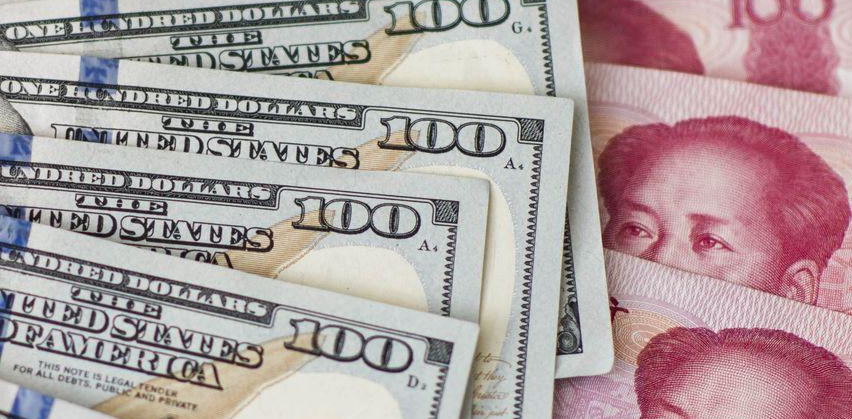De-dollarization Gains Momentum Globally
Advertisements
In recent developments, China’s strategic move to cut down its holdings in U.S. Treasury bonds has captured international attention. Throughout 2024, China has made consecutive reductions in its U.S. debt investments, marking its eighth reduction in the year. Addressing the implications of this action requires a deeper examination of both countries’ economic landscapes, as well as the broader ramifications on global finance.
The vast scale of U.S. budget deficits resembles a financial volcano with the potential to erupt at any moment. Its molten core consists of a ballooning debt that is slowly consuming the American economy. As of 2024, the U.S. fiscal deficit stands at a staggering $1.833 trillion, a mere fraction of the looming crisis. According to the Congressional Budget Office, the U.S. debt could soar by an astounding $20 trillion over the next decade, pushing it past the $50 trillion mark. Such astronomical figures reflect a monstrous entity staggering under a mountain of debt, teetering on the brink of collapse.
China’s reduction of its U.S. debt is not an isolated incident; it is emblematic of a global shift away from reliance on the dollar. In 2024, seven of the world’s top ten holders of U.S. Treasury securities, including economic giants like Japan and the UK, similarly reduced their holdings. This trend cannot be dismissed as mere coincidence but rather underscores a collective awareness among nations of the diminishing hegemony of the dollar and the rising risks associated with dollar-denominated assets. It is as if a coalition of once-trustworthy partners is slowly walking away, presenting a formidable challenge to the credibility and might of the United States.

The ongoing expansion of the U.S. fiscal deficit acts like a chronic poison, gradually eroding the nation’s economic strength. The U.S. government’s expenditures have consistently outpaced its revenues, a stark reality known to many. To address this budgetary shortfall, borrowing has become a necessity, creating an unsustainable debt pyramid akin to a precarious Ponzi scheme. Burdened by substantial national debt, the U.S. government faces significant constraints in international relations. The attempt to abolish the debt ceiling is a desperate recourse, highlighting an uneasy admission of the current economic predicament—comparable to a terminally ill patient refusing treatment.
However, the issues confronting the U.S. extend beyond fiscal deficits. The country’s competitiveness in technology and manufacturing sectors continues to decline. In response to this situation, the government has initiated the establishment of an independent 'efficiency department,' seeking to enhance performance through budget cuts and bureaucratic streamlining. Nonetheless, this approach merely addresses symptoms, much like putting patches on an aging machine that is destined for obsolescence. It’s akin to attempting to repair a crumbling building while ignoring the imminent risk of collapse.
The sell-off of U.S. Treasuries by various nations reflects a significant decline in confidence in the dollar. Japan, for instance, is repatriating vast amounts of gold reserves from Europe and actively pursuing joint digital currency initiatives as part of its strategy to diminish dollar dependence. Moreover, the UK has even declared bankruptcy, representing a direct challenge to U.S. dollar hegemony. Other countries are also implementing measures to reduce their reliance on the dollar, suggesting that a movement towards de-dollarization is gaining momentum. This phenomenon resembles a silent revolution, where nations seek new safe havens for their assets.
The relationship between China and the United States entered a continuous state of tension in 2024 while simultaneously seeking a measure of stability. A January 7 video call between Chinese and U.S. officials, carrying signals of managing divergences, does not suggest a fundamental improvement in relations. The U.S. has placed numerous Chinese firms on an 'entity list,' while China has countered with escalating measures, indicating that the strategic competition between the two nations remains robust. It’s reminiscent of two martial artists appearing amicable on the surface, yet harboring the tension for potential confrontation beneath.
With the onset of a new U.S. administration, the potential for increased tariffs looms large, which could reflect a shift towards a more insular economic policy. Such measures could exacerbate global trade tensions, carrying negative repercussions for the world economy. The decisions by various nations to divest U.S. debt are anticipatory reactions to this evolving scenario, akin to preparations for an impending storm.
The reduction of U.S. Treasury holdings by China serves as a dual strategy—safeguarding its own interests while actively responding to shifts in the global economic framework. China remains committed to peaceful development, aspiring to bolster its own strength through stability. However, it also recognizes that maintaining vigilance is imperative in light of U.S. hegemony. This response is comparable to a composed chess player, remaining calm while strategizing to outmaneuver an opponent, aiming for a decisive victory.
In summary, the fiscal predicaments facing the U.S. intensify, with the dollar's dominance confronted by serious challenges and a palpable shift towards global de-dollarization. While China and the U.S. pursue localized stability amidst intricate negotiations, inherent risks remain. The global economic landscape is poised for profound adjustments, calling for cautious navigation by nations that must actively seek effective responses. All signs indicate that a financial storm may be brewing, with potentially far-reaching consequences for the global economy.
Leave a Reply